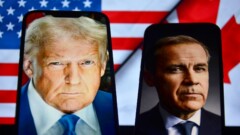I eventually gave in to the pressure. I had seen Three Cups of Tea on the shelves of airport bookstores, in the hands of friends and on countless bestseller lists. I thought it was only right that, if so many people were reading it, I should read it too. And so, while browsing through one of those airport bookstores and searching for some early-morning easy reading, I finally picked it up.
Three Cups of Tea tells stories from the life of adventurer, mountaineer and humanitarian Greg Mortenson. In 1993, Mortenson, having failed in an attempt to climb K2, wandered into a tiny village deep in the mountains of Pakistan. Embraced by the people of this village, and seeing that they had no school building for their children, he vowed to someday return and build a school. Being a man of his word, he did just this. The book details how he kept that promise and how he went on to build not just one, but fifty-five schools, in that area. It details the challenges he faced and how he overcame them. He is an amazing individual and one who somehow reminded me of Steve Irwin (the Crocodile Hunter) in his passion, intensity and drive. The book is part adventure, part biography. The story is so compelling, it is little wonder that it has generated so much interest.
While Greg Mortenson is credited as co-author of this book, it is quite clear that David Relin did the writing. Greg relayed stories of his life and Relin wove these together into a narrative. Unfortunately, some of what Relin wrote is so over-written, so melodramatic, that it is downright comedic. Try this for an example: “Mortenson strode across the room to the wastebasket. It was large, made of dull metal, and battered by the impurities of thousands of people unfortunate enough to have passed through this room. He held the bottle out above it, straight-armed, and then let go. The Baileys clanged against the metal can with a sound, to Mortenson’s ear, like a steel door clanging shut. He collapsed onto the bed.” I think a good editor might have shortened this to, “Mortenson threw out the bottle and went to bed.” Here is another squirm-worthy example: “After they’d traveled half a kilometer, he saw the firefight resume. The widely spaced streams of tracers leaped across the road like ellipses. But to Mortenson, who wouldn’t learn his friends had survived until the following week, when he returned to Kabul, they looked more like question marks.” That just has to rate on an all-time list (though I’ll grant it isn’t quite as terrible as last year’s winner of the annual Bulwer-Lytton Fiction Contest: “Gerald began — but was interrupted by a piercing whistle which cost him ten percent of his hearing permanently, as it did everyone else in a ten-mile radius of the eruption, not that it mattered much because for them ‘permanently’ meant the next ten minutes or so until buried by searing lava or suffocated by choking ash — to pee.”). Thankfully such examples are quite rare and the bulk of the book avoids over-dramatization.
The back cover of the book is correct when it says that this book testifies to a “humanitarian spirit.” While the Christian can be pleased to see these schools built and can rejoice to see children educated, he must be less pleased to see the concessions Mortenson made to the Muslim faith so prevalent in the area. While he does not claim any particular faith, Mortenson does seem drawn to faith in general, worshiping how he sees fit and when he sees fit. While the book is not exactly hagiographic, neither does it acknowledge God as the One who has ultimately preserved Mortoneson’s life and granted him the ability to do so much for the impoverished children of Pakistan. This oversight negates much of the power of the book, at least in my eyes.
Though Three Cups of Tea tells an interesting life story of a fascinating individual, the quality of writing and the humanistic spirit detract from what could have been a much better story. I guess I have to admit that I was rather disappointed by it.










